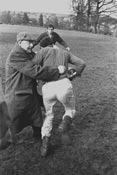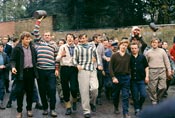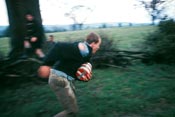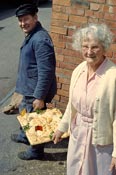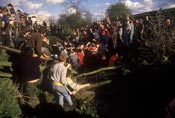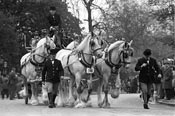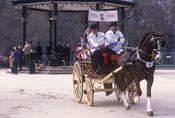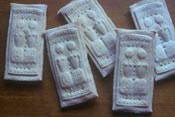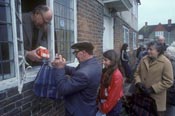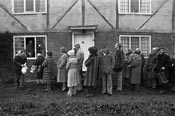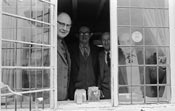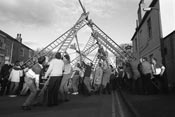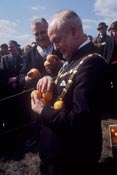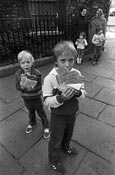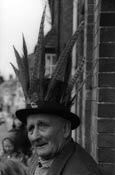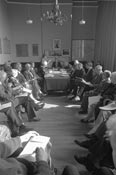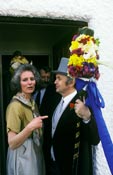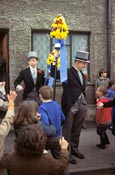
Egg Rolling on Easter Monday in Avenham Park, Preston, is well known and popular now, though it had all but died out in the 1960s. A ‘London’ spectacular was the London Harness Horse Parade in Regent’s Park, but since 2006 it is no longer in London. Started in Battersea Park in 1885 to encourage the owners of working horses to look after them more humanely it soon moved to Regent’s Park where it stayed until logistics drove it back to Battersea for a few years and then a further 35 miles south to the South of England Showground in Ardingly, West Sussex. Meanwhile the Chulkhurst Charity is distributed in Biddenden according, it is alleged, to the bequest of Mary and Eliza Chulkhurst, conjoined twins who lived there in the 12th century. Oranges are Rolled on Dunstable Downs. Every third year they lower the Maypole in Barwick-in-Elmet to paint it and replace the garlands that adorn it, then raise it again on Spring Bank Holiday. This double spectacular was a nerve-racking process involving ropes, ladders and about 200 burly Yorkshiremen until the insurance companies (no doubt aided and abetted by Health & Safety), moved in to suggest that a JCB might be a safer alternative. One can see their point, but one is not going to drive up from London to watch...
On Easter Tuesday the children of the parish (and anyone else who happens to be there) enjoy ‘Tuppenny Starvers’ at the church of St Michael-on-the-Mount Without in Bristol according to the bequest of Peter and Mary Davis in 1748. On the same evening the ‘Uppies and Doonies’ of Workington do battle for the second time - and yet again, for the third time, on Saturday.
Hocktide is a week later. In medieval times the festival involved the paying of rents and various celebrations which have long since died out, except at Hungerford where their ‘Tutti Men’ and Hocktide Court survive as one of England’s most famous customs. The Court Leet still administers affairs for the hundred householders granted ‘commoners rights’ by John o’ Gaunt in the 14th century, while the Tutti Men are in fact officers of the court who gather tithes from the commoners in the form of kisses from the women and pennies from the men – and a drink in each house!

